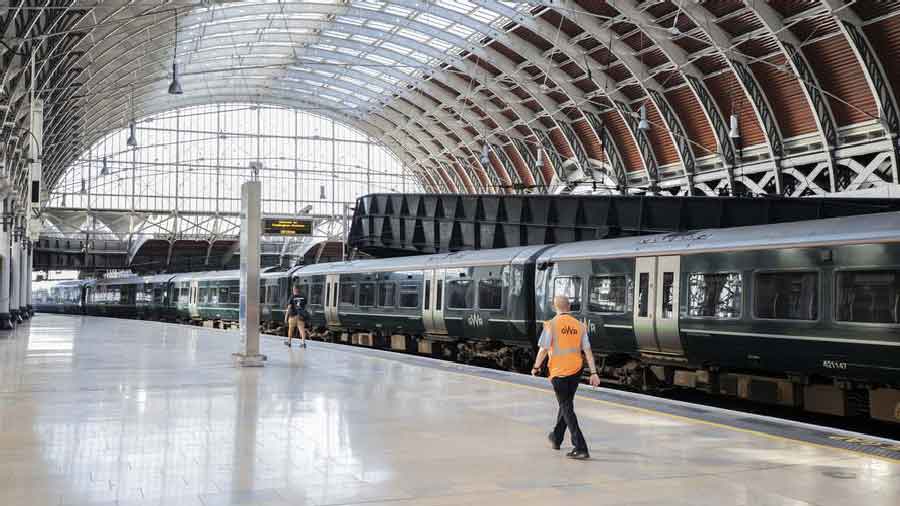Drivers from nine rail companies have walked out over proposed job cuts, pay and working conditions. Large parts of Britain's train network have been brought to a standstill and further strikes are set for next week.
Thousands of train drivers walked off the job in the United Kingdom on Saturday in a strike over jobs, pay and conditions, scuppering services across much of the country.
The 24-hour strike by members of the Associated Society of Locomotive Engineers and Firemen (ASLEF) stopped rail services on major routes, including between London, Scotland and Wales as well as commuter trains around the capital.
British travelers have already seen a summer of travel chaos due to flight cancellations and long delays at airports and seaports.
Saturday's strike is set to cause misery for holidaymakers and soccer fans who rely on the rail network to travel to matches.
Why are UK rail workers on strike?
Rail travel in the UK has yet to fully recover from the COVID-19 pandemic — the number of train journeys made annually are down by more than half since before the virus struck.
Now that the government has withdrawn subsidies to help keep firms afloat during lockdowns, many rail companies say they have no option but to slash costs and staffing.
Like much of the rest of the world, Britain is also facing a cost of living crisis. Inflation hit a 40-year high of 9.4% this year and is predicted to rise to 13%.
The soaring prices of food, energy and fuel are driving workers' demand for better wage deals.
Unions also accuse Britain's Conservative government of preventing train companies — which are mostly privately owned but heavily regulated — from making a better pay offer.
The government helps to set fares, service levels and industry structures and has been forced to renationalize several lines due to the failure of lossmaking rail operators to maintain punctuality.
"The companies have said that they cannot, or will not, give our members an increase," said Mick Whelan, general secretary of the rail union ASLEF. "They blame the government... while the government says it's down to the train operators. So we are caught in a Catch-22 situation."
The Department for Transport has denied it was blocking negotiations and called on unions and the rail sector to "agree a deal that is fair for railway staff, passengers and taxpayers."
Summer of discontent
Britain has already seen severe travel chaos in recent months.
Airports and airlines were the first to struggle with the sudden demand for air travel, sparking long delays at airports and tens of thousands of flight cancellations. The turmoil has since spread to other European countries, including Germany.
As the summer vacation got underway last month, travelers leaving the UK by ferry and the Channel Tunnel faced long delays due to issues at the border.
During the past two months, thousands of railway cleaners, signalers and maintenance workers staged a series of one-day strikes.
Further rail strikes are planned for next week, alongside a walkout by bus and tube (subway) staff in London, which could cripple public transport in the capital.
Other private and public-sector unions are also planning walkouts this month, including those representing postal workers, lawyers, British Telecom staff, dock workers and garbage collectors.











